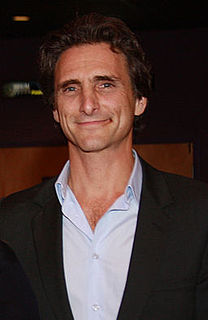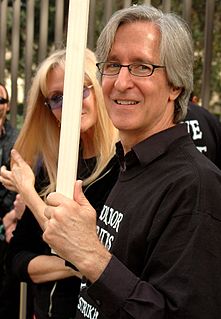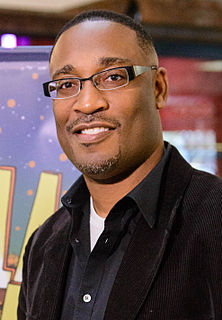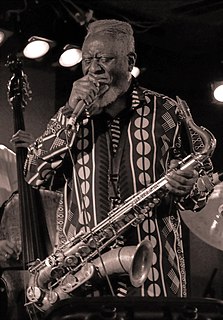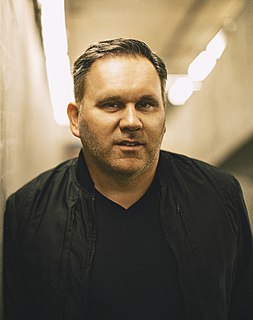A Quote by Lawrence Bender
What I would say to filmmakers, if I may be so bold or so arrogant, is to draw inspiration from other filmmakers, but go to the place in your own gut where everything is nothing. That's a very Zen thing to say, but that place of nothing is where real creativity comes out of.
Related Quotes
Do nothing that you would not like God to see. Say nothing you would not like God to hear. Write nothing you would not like God to read. Go no place where you would not like God to find you. Read no book of which you would not like God to say, "Show it to Me." Never spend your time in such a way that you would not like to have God say, "What are you doing?
Everything is a meaningless struggle against nothing and when people say that the world has become a better place that is a false development-optimism. Nothing exists which ever becomes better. Everything stays the same. Somehow, there is nothing. That is so sad. Nothing to come to. Everything is an illusion. A very sweet illusion.
If I had all the filmmakers that traumatized me when I was a little kid in this room, all I would say is, 'Thank you,' because they've made me who I am. As much as I say 'trauma,' it all comes from a place of love. The fact that I am feeling emotions at all based on a work is a wonderful thing, so I'm happy to be a part of that discussion.
It's probably unprecedented for a filmmaker simply to take the writers' script and treat it as the instructions on the package. What really happens is you pretty much suppress your own instincts - and your own views on the matter - and write things the way filmmakers would like to have them, though the filmmakers often don't know what they want. They can only find out by reading what you do.
The movie studios, they only like to make - I make a joke, but it's true - if the movie has the word "man" and a number in the title, they'll make it. If it doesn't have that, it's an R-rated raunchy comedy, and that's it. Any other movie that you're going to make is going to be an independent one. So for filmmakers who want to do something other than "man" and a number, it's either independent films or television, which is like the place for real creative filmmakers to go.
I have my own way to walk and for some reason or other Zen is right in the middle of it wherever I go. So there it is, with all its beautiful purposelessness, and it has become very familiar to me though I do not know "what it is." Or even if it is an "it." Not to be foolish and multiply words, I'll say simply that it seems to me that Zen is the very atmosphere of the Gospels, and the Gospels are bursting with it. It is the proper climate for any monk, no matter what kind of monk he may be. If I could not breathe Zen I would probably die of spiritual asphyxiation.
To 'know your place' is a good idea in politics. That is not to say 'stay in your place' or 'hang on to your place', because ambition or boredom may dictate upward or downward mobility, but a sense of place - a feel for one's own position in the control room-is useful in gauging what you should try to do.
Zen enriches no one. There is no body to be found. The birds may come and circle for a while in the place where it is thought to be. But they soon go elsewhere. When they are gone, the "nothing," the "no-body" that was there, suddenly appears. That is Zen. It was there all the time but the scavengers missed it, because it was not their kind of prey.
We're on speaking terms today. I say, Maybe we should hang out with the boys, and you shake your head. I want to spend time with you, you say. If we're still good, next week maybe. That's the most we can hope for. Nothing thrown, nothing said that we might remember for years. You watch me while you put a brush through your hair. Each strand that breaks is as long as my arm. You don't want to let go, but don't want to be hurt, either. It's not a great place to be but what can I tell you?
I love to say that not only is the throne room of God a place of reverence, it's always a place of refuge. So when everything else in life seems to be shifting, or breaking and shaking apart, there's a place that is always stable, safe, and constant. When we draw near to God in worship, and approach His throne, we tap into that. It's a very re-assuring place, where we're reminded that there's a God on His throne, and even when we don't understand everything, we can trust it to Him.
